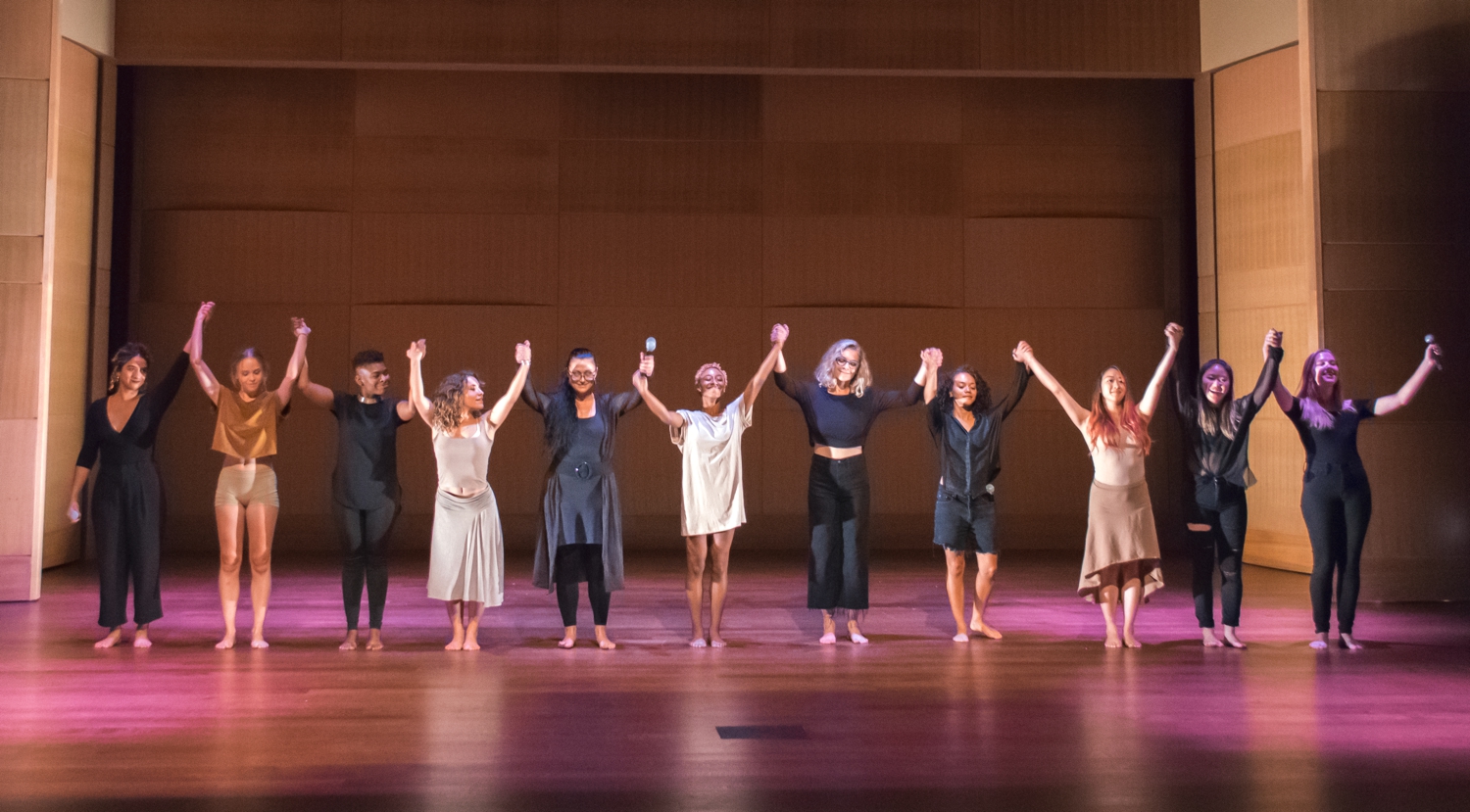Born from a series of writing workshops by the The Naked Narratives Project, “Bodies of Lineage” is a nine-act exhibition of music, dance and personal narrative. The multimedia performance took place Sept. 14 in Rothenberg Hall at the Huntington Library, Art Collections and Botanical Gardens, featuring an ensemble from Naked Narratives and the Sokamba Performing Arts Company. A self-identified group of queer femmes and women of color, the performers delved into their pasts by way of the lips, eyes, hair, hands and skin, all serving as portals to powerful spoken word pieces and dance. According to Naked Narratives founder and “Body of Lineage” director Jheanelle Garriques, the performance demonstrated how recollection is an exercise in confrontation and sought to address the distinct traumas and ecstasies housed in the body parts of queer people and femmes of color.
“Bodies of Lineage” was part of an initiative called “Five,” in which the Huntington partners with a different organization each year for five years, opening its collections to collaborators for integration into an art piece. This year — the program’s second — the Huntington joined forces with the Los Angeles based, nonprofit organization Women’s Center for Creative Work (WCCW), which has gained repute as a hub for intersectional feminist, educational projects and artistic collaborations. This partnership allowed one of WCCW’s associates, the Naked Narratives Project, to consult the Huntington archives and incorporate early feminist texts, the Montagu letters, into the Bodies of Lineage performance.
The exhibition began with a single performer on stage, playing an original violin piece to the words of Elizabeth Montagu cast on the backdrop. Garriques said Montagu served as a seminal inspiration for the Naked Narrative workshops and Bodies of Lineage performance. The founder of an early women’s writing salon, Montagu created the Blue Stockings Society to empower female poets and authors in 18th century Britain. As the violin swelled, an off-stage narrator read excerpts from the Montagu letters — an extensive collection archived at the Huntington which features a variety of correspondences between Montagu and members of the Blue Stockings Society.
The Sokamba Performing Arts Company, an LA-based multimedia arts collective founded by Rissi Zimmerman, contributed contemporary dancers to the performance, whose spirited choreography accompanied the spoken narratives.
Garriques, a poet, model and black feminist, founded Naked Narratives in LA in 2014. The group hosts regular creative workshops, restorative in practice, that help participants construct meaningful personal narrative. A five-week sequence of literary workshops this past August laid the foundation for what evolved into the multimedia performance at the Huntington. The summer workshops emphasized a singular part of the body per session to consider its significance to self-perception, early development and social awareness.
Garriques recognized that in a world where femmes are taught to embody virtue and whiteness, they often sacrifice free movement for the sake of propriety. Therefore, Naked Narratives inspired participants to reclaim the body and confront residual trauma with verse. Each workshop ended with some form of self-care ritual meant to heal the body part in focus. The pieces constructed from this process were incredibly powerful, and the group eventually developed them into Bodies of Lineage.

In an interview after the performance, spoken word artist Renae Keene explained the significance Montagu gave to rehearsals and narrative construction.
“The Montagu letters were used to ground us in a creative space when we started, especially [when] discussing the Blue Stockings Society as a proto-feminist writing salon,” Keene said.
Taking inspiration from Montagu’s writing coterie, the performers addressed the ways in which their identity has time and again strained against the confines of gender and racial stereotyping. The artists’ cultural backgrounds lent to a diversity of perspectives, tied by common themes of discrimination, lost innocence, romance and intergenerational conflict, especially as they relate to maternal authority.
In a Q&A session after the final act, Garriques explained that the performance was planned for exhibition solely that evening. While future performances are not assured, the Naked Narratives workshops live on, having evolved from a series first held in Garrique’s living room years ago, to a compelling performance at the Huntington. Even more, the literary workshops founded by Naked Narratives have now spread to three continents and six cities, including Cape Town, South Africa; Yangon, Myanmar; and Amsterdam, The Netherlands.
Performer Rachel O’Leary said creative spaces like the one “Bodies of Lineage” created, provide a productive and supportive outlet and hopes to continue working on similar pieces.
“The takeaway for me is that it has been such a beautiful exercise, each week was such a ritual, and to take the time to force yourself to create space to write about all this very visceral trauma, I kind of want to do it all over again by myself and for myself,” O’Leary said. “I’d like to write all the pieces knowing what I know now, and just feeling a little more confident this time around.”
For those interested in literary workshops with Naked Narratives or activities with other creative organizations in LA, check out their calendar of events by the Women’s Center for Creative Work.
![]()




































